ANN/CHINA DAILY – In 1983, by the outdoor swimming pool at Beijing’s Taoranting Park, the dream of Chinese artistic swimming was born when a group of swimmers gathered for the first time.
After nearly 15,000 days and nights of relentless effort from them and the generations that followed, that dream has finally been realised – China is now an Olympic champion.
On Wednesday night in Saint-Denis, Paris, the Chinese artistic swimming team secured their first-ever Olympic gold medal in the team event. The team, composed of Feng Yu, Chang Hao, Wang Ciyue, Zhang Yayi, Wang Liuyi, Wang Qianyi, Xiao Yanning, Cheng Wentao and Xiang Binxuan, delivered a stunning performance in the team acrobatic routine, earning 283.6934 points and bringing their overall score to a historic 996.1389.
“We have not only fulfilled our own dreams, but also carried the aspirations of generations before us. As a generation entrusted with a significant responsibility, we came to Paris thoroughly prepared, hoping that three years of hard work would yield a perfect result,” said team captain Feng.
Before departing for Paris, Feng, who served as the female flag bearer for the Chinese delegation at the opening ceremony, vowed to “impress the judges and surprise the audience”.
At the Olympic Aquatics Centre, that promise was fulfilled.
After their victory, the Chinese athletes celebrated by high-fiving every medallist.
“Happiness needs to be shared. We wanted to share our joy with all the athletes, not just because it’s our first gold medal, but because we are all winners,” said Wang Liuyi.
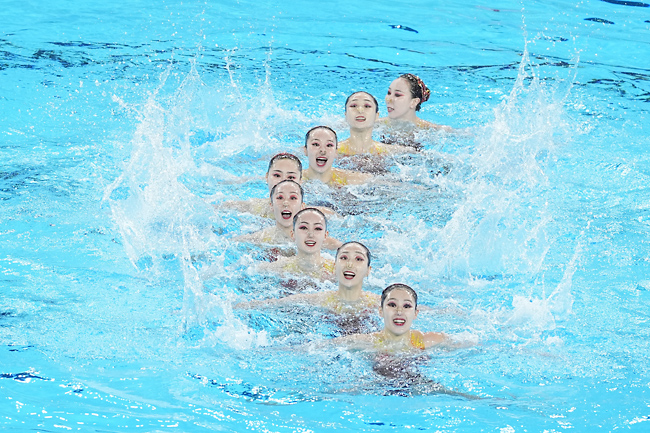
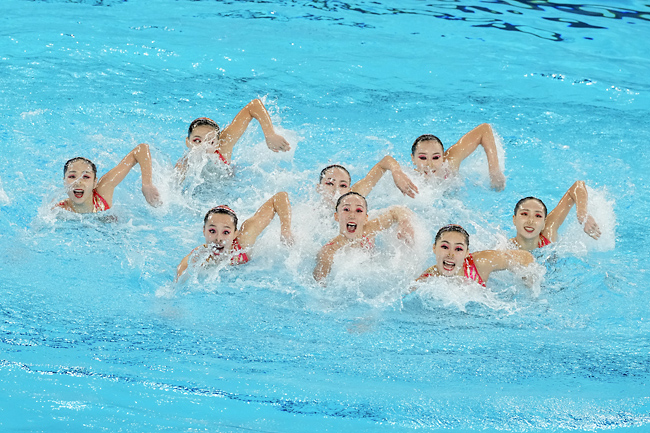
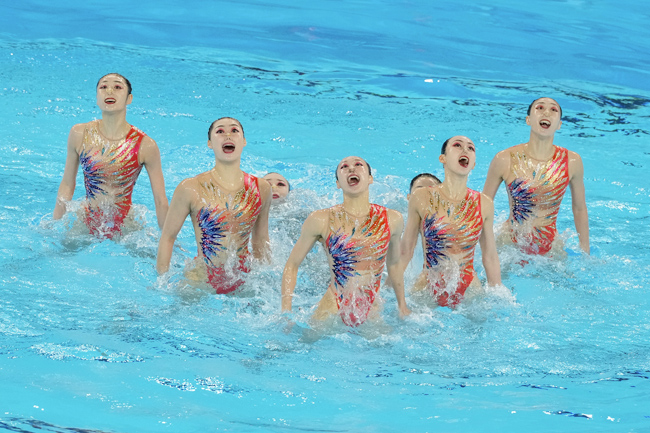
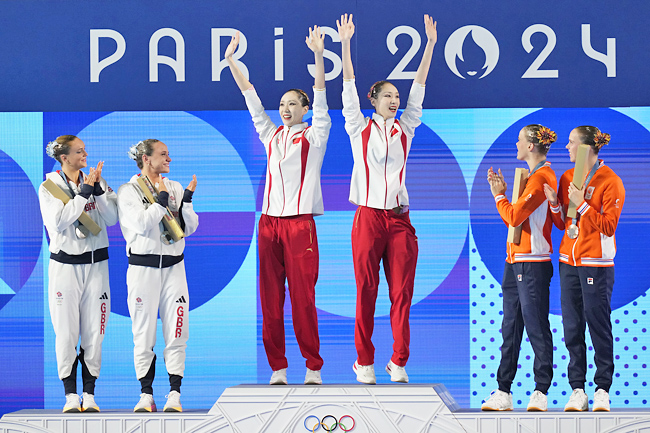
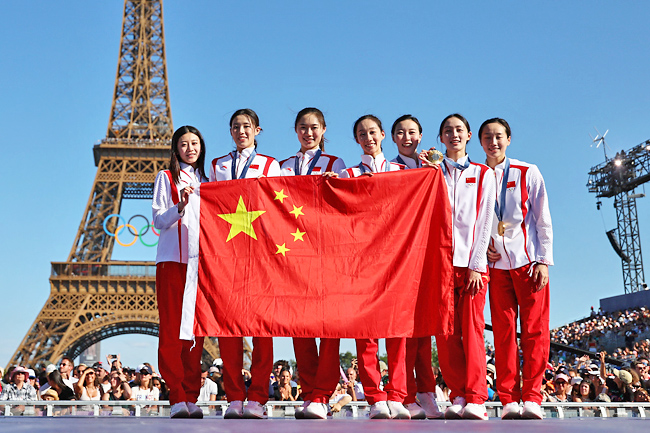
Wang Liuyi’s twin sister, Wang Qianyi, was participating in her second Games. Sharing the Olympic stage with her sister made the moment even more special.
“Last time, I competed in the Olympics alone. This time, standing on the podium with my sister feels completely different. Even though it’s a team event, having my sister by my side makes me even happier, especially because we won the gold medal,” said Wang Qianyi.
The Paris Olympics saw new rules introduced for the artistic swimming team event, which now includes a technical routine, a free routine and an acrobatic routine, each of which is scored separately. The team with the highest combined score is crowned champion.
A major change in the rules is that any mistake, or a failure to complete the declared difficulty, will result in the score being downgraded to the base score.
“With the new rules, all countries start on an equal footing. During our preparation, we faced both successes and setbacks. Despite the high expectations for this gold medal, we managed to handle the pressure,” said Wang Liuyi.
“The biggest challenge is not the external competition or the difficulty levels of other countries, but ourselves.” In February, the team delivered its best-ever performance at the World Championships in Doha, securing seven gold medals, one silver and a bronze – a massive confidence boost ahead of Paris.
And what boost it was.
On August 5, China led the field with a score of 313.5538 in the technical routine.
The following evening, they maintained their dominance in the team free, with a routine that scored 398.8917, the highest of the competition. Their routine featured a tribute to the Paris Games with a formation resembling the iconic Eiffel Tower.
On August 7, the team delivered a nearly flawless performance in its final routine, once again earning the highest score and setting a new benchmark in Chinese artistic swimming.
The team’s head coach Zhang Xiaohuan said that she integrated Chinese cultural elements into the routine choreography to emphasise the artistic sensibilities of the nation’s heritage.
“For instance, one formation represents the Chinese character shan (mountain) found on ancient oracle bones, evoking the imagery of rising peaks. This also reflects our team’s relentless pursuit of its dreams,” she said.
“Preparation was tough, but we kept ourselves in the fight and persevered. I think this was a great performance. We also drew inspiration from our competitors, as well.”
Zhang Xiaohuan noted that the new rules required athletes to master challenging manoeuvers that they had never attempted before, so there was not only considerable pressure, but a physical toll.
“They fought hard and never gave up. Training has been extremely demanding, with athletes suffering broken bones, facial injuries, and other issues that required hospital visits,” Zhang Xiaohuan said.



















































